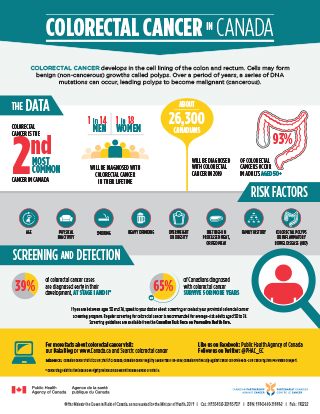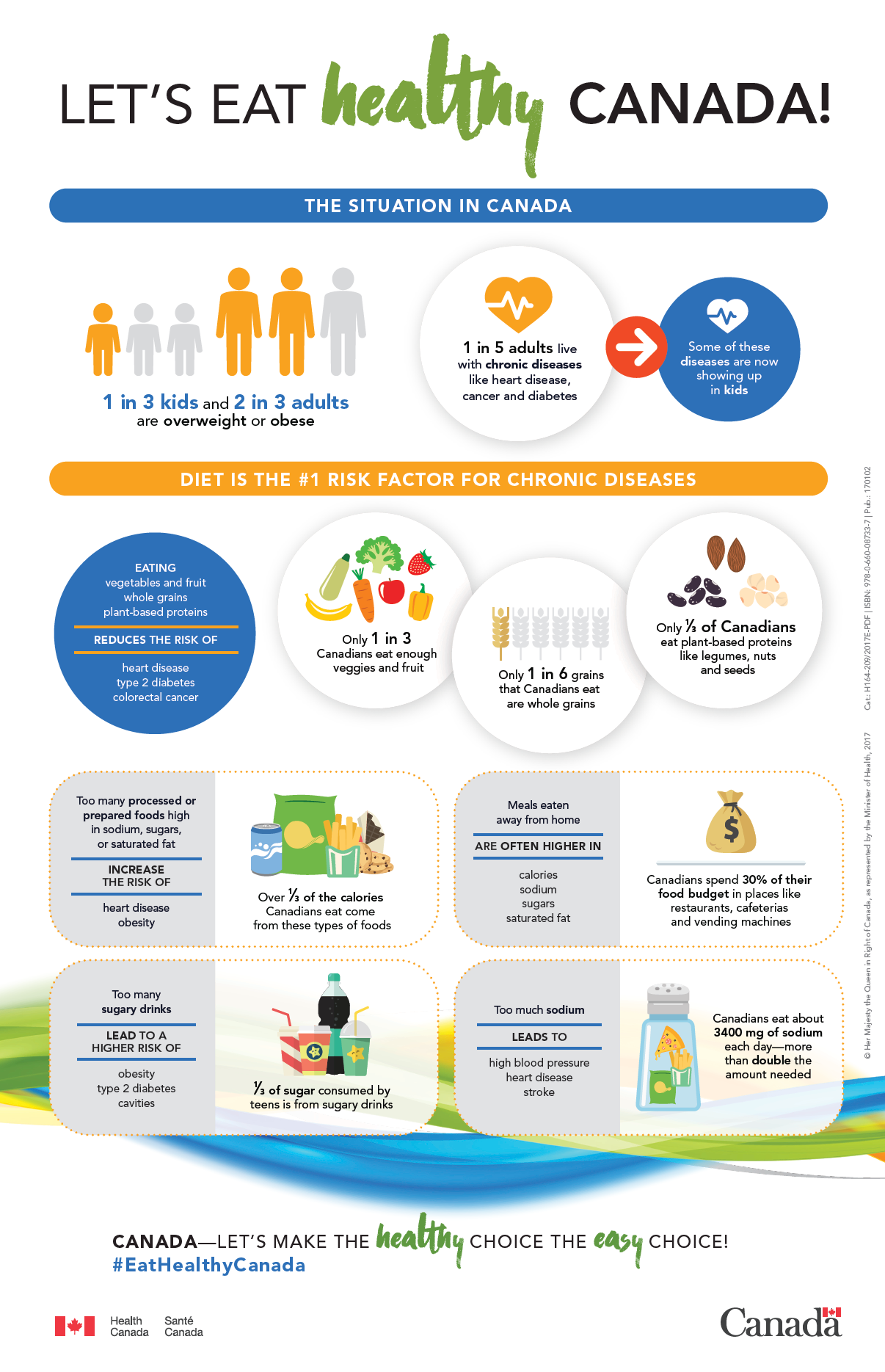
In 2019, colorectal cancer was the 2nd most common cancer in Canada, with 1 in 14 men and 1 in 18 women diagnosed in their lifetime (approx. 26,300 Canadians diagnosed). It was the second leading cause of death from cancer in men and the third leading cause of death from cancer in women in Canada.
But there have been recent declines in colorectal cancer incidence rates in both males and females. The recent declines are likely due in part to increased use of colorectal cancer screening which can identify and remove precancerous polyps, which can in turn reduce incidence.
Death rates have also been declining. Most of this decline is likely driven by decreased incidence, as well as by improved diagnosis and treatment.
For 2020, colorectal cancer is expected to be the third most commonly diagnosed cancer in Canada in 2020 (excluding non-melanoma skin cancers). Here are a few more stats for 2020:
- 26,900 Canadians will be diagnosed with colorectal cancer. This represents 12% of all new cancer cases in 2020.
- 9,700 Canadians will die from colorectal cancer. This represents 12% of all cancer deaths in 2020.
- 14,900 men will be diagnosed with colorectal cancer and 5,300 will die from it.
- 12,000 women will be diagnosed with colorectal cancer and 4,400 will die from it.
- On average, 73 Canadians will be diagnosed with colorectal cancer every day.
- On average, 27 Canadians will die from colorectal cancer every day.
To provide the most current cancer statistics, researchers use statistical methods to estimate the number of new cancer cases and deaths until actual data become available.
Find more stats on the Canadian Cancer Society website.

Here are 6 ways to help protect your colorectal health:
- If you are between ages 50 and 74, speak to your doctor about screening. Regular screening for colorectal cancer is recommended for average-risk adults aged 50 to 74.
- Eat lots of vegetables, fruits, and whole grains. Diets that include lots of vegetables, fruits, and whole grains have been linked with a decreased risk of colon or rectal cancer. Eat less red meat (beef, pork, or lamb) and processed meats (hot dogs and some luncheon meats), which have been linked with an increased risk of colorectal cancer.
- Get regular exercise. Increasing your activity may help reduce your risk of developing colorectal cancer.
- Watch your weight. Eating healthier and increasing your physical activity can help you control your weight.
- Don’t smoke. Long-term smokers are more likely than non-smokers to develop colorectal cancer.
- Limit alcohol. Alcohol use has been linked with a higher risk of colorectal cancer.
Find more detailed information about colorectal cancer: Colorectal Cancer: Understanding your Diagnosis and Canadian Cancer Society: Colorectal Cancer Resources

















